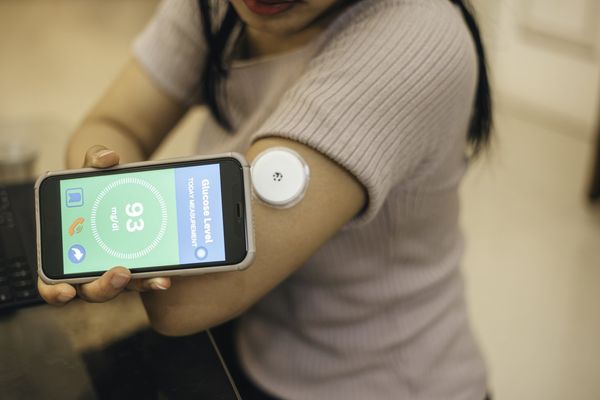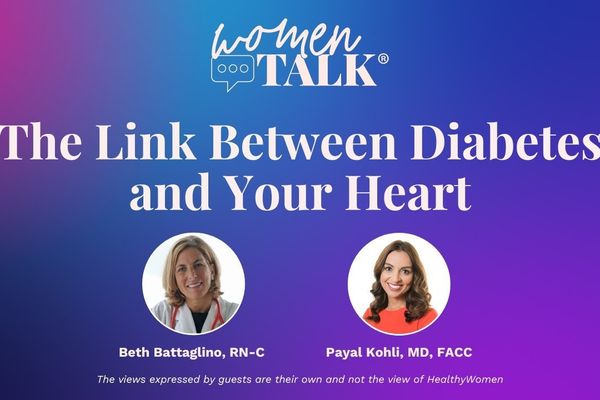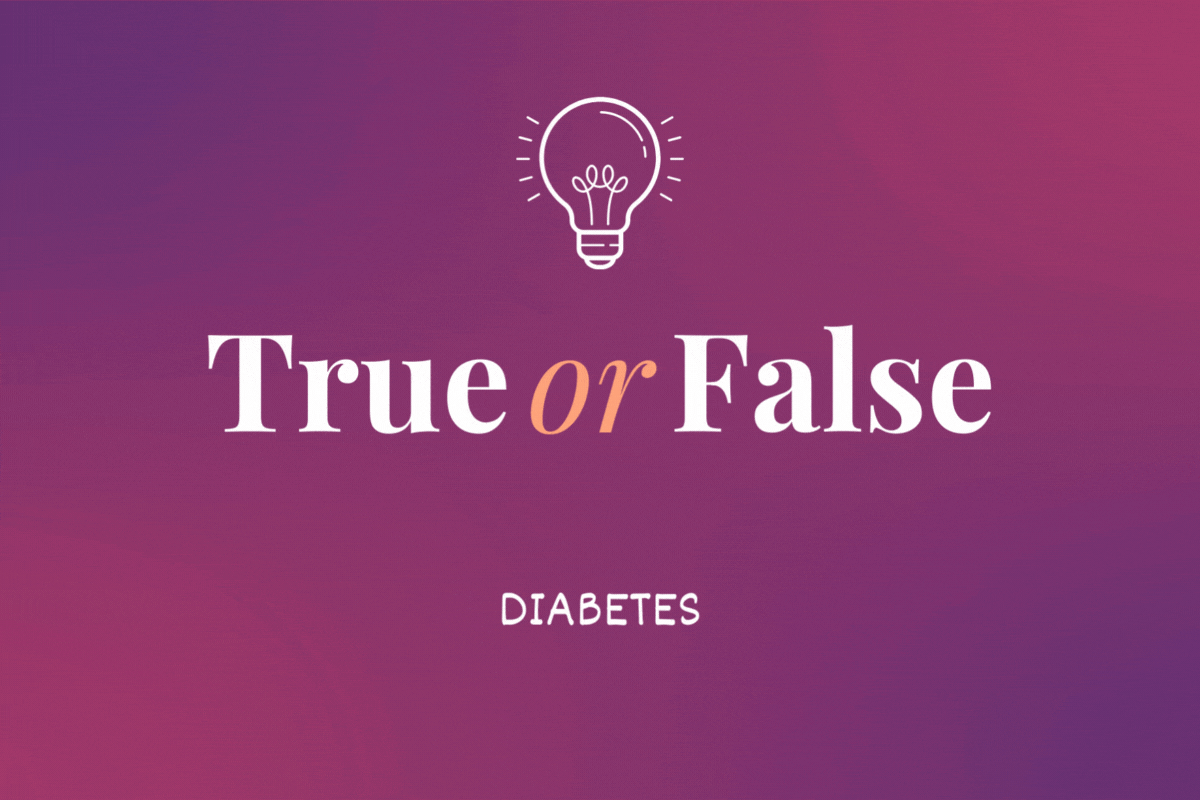About one in nine women in the United States have diabetes, a disease that occurs when blood sugar levels can't be properly controlled and get too high. Type 2 diabetes is the most common form of diabetes and is also a major risk factor for cardiovascular disease, which includes heart disease, heart attack, stroke, heart failure and more.
Although women are generally less likely than men to develop heart problems, they may experience an excess risk of cardiovascular disease when they have diabetes.
Given that diabetes and cardiovascular disease can each have a profound effect on your health, what do you need to know about these conditions?
HealthyWomen spoke with Nieca Goldberg, M.D., medical director for the Women's Heart Program at New York University's Langone Health and a member of HealthyWomen's Women's Health Advisory Council, who suggested questions to ask your healthcare provider (HCP) about diabetes and cardiovascular disease.
How does Type 2 diabetes relate to cardiovascular disease?
Why this question is important:
"Type 2 diabetes is a major risk factor for heart and vascular disease," Goldberg said. "It contributes a three-fold increase in heart attack risk." Goldberg added that people with diabetes are also at greater risk of stroke and peripheral artery disease (cholesterol build-up) in their legs.Am I at high risk for cardiovascular disease? Why?
Why these questions are important:
In addition to diabetes, risk factors for cardiovascular disease include family history, obesity, smoking and high blood pressure. When you know what your risk factors are, you can make changes to reduce your risk.
How can I lower my risk for heart disease?
Why this question is important:
This is a big one because you have more control over your risk factors than you may realize. Lifestyle tweaks such as eating well and getting enough exercise are powerful tools for keeping your heart healthy. Goldberg recommends a Mediterranean diet, which she said trades "meats and sweets" for healthy fats like those found in olive oil. If you're a smoker, she added, "Quit smoking."
Do I need any testing to determine my cardiovascular disease risk? If so, what kind?
Why these questions are important:
Goldberg suggests a blood pressure check and a test called a lipid panel that looks at your total cholesterol as well as LDL (bad) cholesterol, HDL (good) cholesterol and triglycerides. "You should ask your doctor if you need an electrocardiogram," Goldberg said. She added that people with Type 2 diabetes may need a CT cardiac calcium score, which measures calcium in your arteries. "The test gives additional information on your risk for heart disease," Goldberg said.
How do I recognize a heart attack or stroke?
Why this question is important:
You may think you know the signs of heart attack or stroke, but women can have different symptoms than men. Common heart attack symptoms for women are not just chest pain but also nausea, shortness of breath and jaw or back pain, for example. Goldberg said stroke symptoms include sudden numbness or weakness of the face, arm, or leg; sudden confusion; sudden loss of vision; difficulty speaking and sudden severe headache.
My mom had heart disease. Should I be worried I’ll get it, too?
Why this question is important:
There is a genetic component to heart disease, so it's wise to bring up family history with your HCP, especially if it runs in your immediate family. If you know you are at increased risk for developing heart disease, you can work with your HCP to take steps to lower other risk factors.
Are certain populations at greater risk of developing Type 2 diabetes and/or cardiovascular disease?
Why this question is important:
When it comes to cardiovascular disease, there are significant racial disparities. "African American, Asian American and Native Americans have higher rates of diabetes," Goldberg said. In 2018, African Americans were 30% more likely to die from heart disease than non-Hispanic whites.
What are some of the biggest risk factors for Type 2 diabetes? What symptoms should I look for?
Why these questions are important:
Just as with cardiovascular disease, knowing the risk factors of diabetes can help you reduce your risk. Obesity and family history of diabetes are major risk factors. Others include high blood pressure and unhealthy cholesterol levels, as well as polycystic ovary syndrome (PCOS).
What steps can I take to lower my risk of developing Type 2 diabetes?
Why this question is important:
Again, some of the power to reduce your risk of diabetes is in your hands, and the recommendations are much the same as those for cardiovascular disease — to eat healthy and exercise. Aerobic exercise is especially helpful, Goldberg said, because it improves the body's ability to maintain healthy blood sugar levels.
I had gestational diabetes. Does this affect my chances of developing Type 2 diabetes?
Why this question is important:
This question is crucial because women who had gestational diabetes, which is diabetes during pregnancy, are more likely to develop Type 2 diabetes later in life than those who didn't. "Gestational diabetes increases risk for Type 2 diabetes 35%-50%," Goldberg said.
Am I at higher risk for Covid-19 complications if I have diabetes and/or cardiovascular disease? What can I do to manage my risk and stay healthy?
Why these questions are important:
Both diabetes and cardiovascular disease increase risk of complications due to Covid-19, Goldberg said. Her advice? "Wear a mask, social distance, wash your hands. Sign up for a vaccine when it is your turn."
Resource:
KnowDiabetesbyHeart
This resource was created with support from Know Diabetes by Heart™, a joint initiative of the American Heart Association and American Diabetes Association.
- Diabetes and Heart Attack Risk: What's the Connection ... ›
- My Cardiovascular Disease Taught Me How to Live - HealthyWomen ›
- Clinically Speaking: Questions to Ask Your HCP About Cardiovascular Disease - HealthyWomen ›
- What You Need to Know About Diabetes - HealthyWomen ›
- What's Your Heart Disease Risk? Important Numbers to Know - HealthyWomen ›
- The Link Between Diabetes and Your Heart - HealthyWomen ›
- Stroke vs. Heart Attack: Know the Signs & Symptoms - HealthyWomen ›







